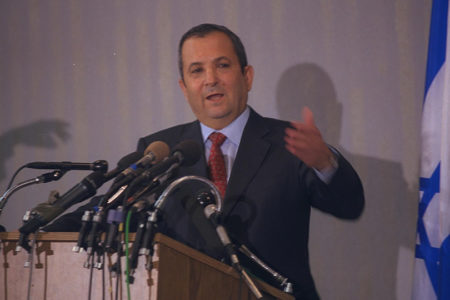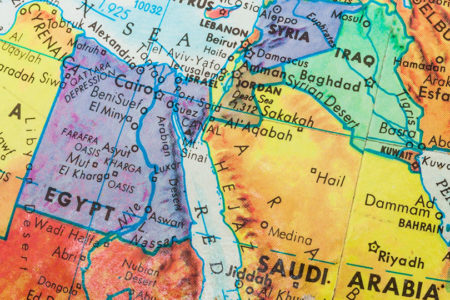Jesus Christ and the Future Kingdom of God Part Four
Introduction
In the previous article we examined the first of three things that God must do to fulfill His purpose for history: namely, He must crush Satan by ridding the earth of him and his entire kingdom. This article will focus on the second thing that God must do: He must restore His theocratic kingdom rule to this present earth.
The Purpose of the Future Theocratic Kingdom
This earth began with God’s theocracy as its government, but the theocracy was lost through the Satan-prompted fall of mankind. If God does not restore His theocratic kingdom rule before this earth’s history comes to an end, then Satan will have defeated God within the scope of this present earth’s history. The restoration of God’s theocratic kingdom as the government of this earth for its last age of history is absolutely essential if God is to fulfill His purpose for world history.
The Time of the Future Theocratic Kingdom
The Scriptures reveal two things concerning the time of the future theocratic kingdom. First, the theocratic Kingdom will be established after the Tribulation and Second Coming of Christ. Christ Himself taught that He will sit upon His throne to rule the earth and introduce the righteous to the kingdom after the Tribulation and His Second Coming (Mt. 24:21, 29–30; 25:31–34). The Book of Revelation enforces this teaching of Christ by presenting the following order for the future: The events of the Tribulation (Rev. 6–18) followed by the Second Coming of Christ (Rev. 19:11–21), and then the theocratic kingdom (Rev. 20:4–6).
Second, the future theocratic kingdom will be present during the last age of this present earth’s history. After that age ends, Satan will lead one final revolt against God’s rule, and God will quickly crush that revolt (Rev. 20:7–10). Then the present earth will pass away when a great white throne appears (Rev. 20:11; 21:1).
The Length of the Future Theocratic Kingdom
Revelation 20:4–7 indicates that Christ and His saints will reign over this present earth for “a thousand years.” Thus, the future theocratic kingdom will last for one thousand years on this present earth. For this reason, Bible scholars have called the final age of this earth’s history “the Millennium” (from the Latin words mille, which means “a thousand,” and annum, which means “year”).
It should be noted that although the future theocratic kingdom will last for a thousand years on this present earth, it will continue forever on the future eternal earth (Lk. 1:32–33; Rev. 11:15; 21:1–22:5).
The Citizens of the Future Theocratic Kingdom
The Bible reveals several significant facts concerning the citizens of the future theocratic kingdom. First, no unsaved people (the human members of Satan’s kingdom) will be allowed to enter the kingdom at its inception. All the unsaved who are alive at Christ’s Second Coming will be taken from the earth in judgment. Jesus clearly taught this in His parables of the tares (Mt. 13:24–30, 36–43) and the dragnet (Mt. 13:47–50) and in His Olivet Discourse (Mt. 24:37–41; 25:31–46).
Second, all the saved people (people who have believed on the Lord) throughout all previous ages of history will enter the theocratic kingdom with Christ. They will consist of four groups.
Church Saints. Those saved from the Day of Pentecost in Acts 2 until the Rapture of the Church will constitute the first group. Because they will have been raptured to Heaven before the Tribulation, they will return with Christ to the earth at His Second Coming following the Tribulation. Thus they will be on the earth with Him for the theocratic kingdom. Two things indicate this fact. First, after the Apostle Paul referred to the Church saints being raptured from the earth to meet Christ in the air, he said, “and so shall we ever be with the Lord” (1 Th. 4:17). Once raptured, the Church saints will go wherever Christ goes. Second, Paul also taught that Church saints shall reign with Christ (2 Tim. 2:12). As a result of the transformation of their bodies at the Rapture (1 Cor. 15:51–53; 1 Th. 4:16), the Church saints will have glorified, immortal bodies in the theocratic kingdom.
Old Testament Saints. Those who became saved and died before the Church began will constitute the second group of saints in the theocratic kingdom. They will be resurrected in conjunction with Christ’s Second Coming after the Tribulation. Daniel 12:1–2 refers to people being resurrected to everlasting life after the unparalleled time of trouble (the Great Tribulation). A statement made to Daniel in that context seems to indicate that he, as an Old Testament saint, would be resurrected at that time (12:13).
Resurrected Tribulation Saints. These will constitute the third group in the theocratic kingdom. The Apostle John indicated that people who will get saved and be martyred during the Tribulation will be resurrected in conjunction with the Second Coming of Christ after the Tribulation (Rev. 20:4–6).
Surviving Tribulation Saints. This fourth group of saints entering the theocratic kingdom will be comprised of people who will become saved during the Tribulation and will survive the Tribulation alive. Because they will have escaped death, they will enter the kingdom with mortal bodies and therefore will still have their sin natures. They also will be able to marry and give birth to children. These surviving saints are “the sheep” of Matthew 25:31–34 and those that are “left” in the field and at the mill at Christ’s Second Coming (Mt. 24:39–41). They will differ markedly from the saints of the first three groups, all of whom will enter the kingdom with glorified, immortal bodies and therefore will be sinlessly perfect and will not marry or give birth to children.
There is a third significant thing concerning the citizens of the future theocratic kingdom: Some will be unsaved. As time passes, unsaved children will be born into the kingdom (Jer. 30:19–20; Ezek. 47:22). Thus, although only saved people will be on the earth at the beginning of the kingdom, unsaved people will arrive through childbirth. The fact that a huge multitude will flock to Satan when he is released from the bottomless pit after the Millennium (Rev. 20:7–9) indicates that many of those born during the Millennium will not believe on the Lord during that time.
The Nature of the Future Theocratic Kingdom
Two things should be noted concerning the nature of the future theocratic kingdom. First, it will be an earthly kingdom involving the administration of God’s rule over everything on this present earth. Second, it will be a political kingdom involving governmental structure and function.
The Earthly Kingdom. Just as the original theocratic kingdom involved the administration of God’s rule by His original representative, the first Adam, over this present earthly province of God’s universal kingdom, so the future theocratic kingdom will involve the administration of God’s rule by His future representative, the last Adam (Jesus Christ), over this same earthly province.
This is evidenced by the following facts: After Christ’s feet have touched down on the Mount of Olives at His Second Coming, He will be King “over all the earth” (Zech. 14:4, 9). His “dominion shall be from sea even to sea, and from the river even to the ends of the earth” (Zech. 9:10). God’s future kingdom will fill “the whole earth” (Dan. 2:35, 44–45). When Christ will reign as King, He will execute judgment and justice “in the earth,” and the people of Israel will “dwell in their own land” (Jer. 23:5–8). When Christ, as the Son of man, will come with the clouds of Heaven in His Second Coming, the kingdom rule that God will give to Him and the saints will be the kingdom “under the whole heaven” (Dan. 7:13–14, 27). The kingdom that God and Christ will take over in the future will be the kingdom “of this world” (Rev. 11:15). After the Millennium, when Satan will lead a final revolt against Christ’s future rule, he will deceive the nations located “in the four quarters of the earth.” The rebels will go up “on the breadth of the earth” and judgment will come “down from God out of heaven” (Rev. 20:7–9). After this judgment, the present earth will be replaced by a new, eternal earth (Rev. 20:11; 21:1).
The Political Kingdom. Evidences for the political nature of the kingdom are as follows: When Christ will rule, He will sit upon David’s throne, ruling David’s kingdom (Isa. 9:7; Lk. 1:32–33). Since David’s kingdom was political in nature, Christ’s kingdom will be also. Isaiah 9:6–7 states that when Christ will sit upon David’s throne ruling his kingdom, “the government shall be upon his shoulder,” and “Of the increase of his government and peace there shall be no end.” The term government implies literal political rule. There will be individual nations with sub-kings under the rule of Christ (Ps. 72:10–11, 17). He will be the “KING OF KINGS, AND LORD OF LORDS” (Rev. 19:16). Christ will exercise control over international relations, causing the nations to live together in peace (Isa. 2:4; Mic. 4:3). His capital city, Jerusalem, will be the political center of the world. Out of it will issue forth the law by which the nations will be governed (Isa. 2:1–3; Mic. 4:1–2). As Supreme Judge over the affairs of His subjects, He will protect the poor, the needy, and the meek and will punish the oppressors and execute the wicked (Ps. 72:1–4, 12–14; Isa. 11:1–5). These are the functions of political government (Rom. 13:1–7).
Christ’s rule will be characterized by absolute righteousness, justice, and peace (Isa. 9:7). It appears that all His officeholders will be glorified immortal saints who have no sin nature (2 Tim. 2:12; Rev. 20:4–6). This means that every politician in His government will be sinlessly perfect, and therefore there will be no government corruption.
By restoring God’s theocratic kingdom rule to this present earth in conjunction with His Second Coming, Christ will accomplish the second future thing that God must do to fulfill His purpose for history.







